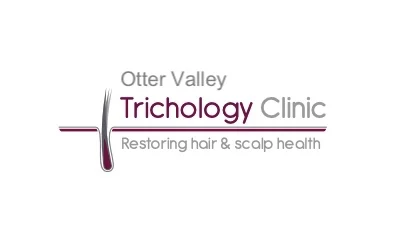About Trichology
What is Trichology?
I often get asked what Trichology is, so here is a brief explanation. Trichology is the study of the science of the structure & function of the hair, plus common and major causes of disorders & diseases of the scalp.
Clinical Trichology is the diagnosis & treatment of disease and disorders of the scalp – a branch of dermatology.
A Trichologist is medically trained to diagnose and treat numerous kinds of hair and scalp health concerns by carrying out consultation and clinical examination of the hair and scalp for males & females of all ages. Trichological diagnosis is made with meticulous research of multiple factors that directly impact on optimal hair growth.
For a person suffering with hair growth disruption, understanding the three main stages of the hair cycle is key to making sense of a concern.
Cellular-level hair development is the second-fastest cell growth in humans. A high percentage of energy is required to support optimal growth for this non-essential tissue 'your crowning glory'.
With a range of 75,000 – 150,000 hairs on the human scalp – a healthy follicle holds 2 – 4 hairs.
Each hair follicle cycles through three main stages of growth:
- Anagen Stage – development & hair growing phase. Active hair growth lasts for between 2 – 7 years & normally involves 85% – 90% of hairs.
- Catagen Stage – growth stops and then the hair root separates from the bulb, reshape as a club, and rests further up the follicle. This phase takes approximately 10 days. On average only 1% of hairs are in this phase.
- Telogen Stage – the club-shaped hair shaft is released so moves up and out of the skin leaving an empty follicle, with an average of 80 – 100 hairs released daily. This phase lasts approximately 3 months. On average 15% of hairs are in the Telogen stage.
Transition to anagen begins with cell development in the empty follicle. However, a whole head of hair doesn't grow in synchrony!
It's quite normal for humans with a healthy hair growth cycle to lose between 80 – 100 hairs every day. However, if the hair isn't thoroughly brushed/shampooed every day the amount of daily hair fall can be twice as much on the days that grooming takes place.
There are numerous causes of excessive hair loss, thinning, and scalp disorders. The root cause might be connected to any one or a combination of:
- Genetics
- Stress (physical and emotional)
- Underlying or unidentified health concerns
- Medication/supplements
- Age-related changes
- Hormone imbalance
- Lifestyle
- Haircare regime
- Nutritional imbalance
- Heavy Metal Toxicity
- Radiation therapy
If the hair follicle is healthy and the problem is caused by poor blood circulation, age-related changes, nutritional or hormonal imbalance, or is a stress-related issue, then accurate diagnosis & treatment generally improves hair growth, and recovery of the growth cycle occurs.
Unidentified and untreated health concerns can greatly influence hair growth. Some kinds of hair loss are recognised as a warning of serious ill-health. If your GP tells someone they've got alopecia they probably have, however this is a very generic term for the numerous types and causes of hair loss that a patient could suffer from. GPs are concerned about general health, not hair health – whereas a trichologist is medically trained in all factors that impact hair & scalp health concerns, and can focus and discuss your hair/scalp concern with you for longer. A trichologist also offers patient support on how to correct and/or self-manage their problem, or provide a written referral to a medical professional if there appears to be a threat to general health.
If you have questions or would like to book a consultation, please contact me.
All trichology consultations are in keeping with ethical standards set by the trusted profession of trichology. Caroline is certified with Trichocare, and a member of the World Trichology Society and Trichology Professional Development Programme.

Why see a trichologist?
Hair Confidence
Improve self esteem, relieve stress, anxiety, depression
Slow Hair Loss
Get information about clinically trialed effective treatments so that you keep the hair you have
Hair & Scalp Health
Get to the root cause of your hair health concerns so that optimal hair growth is achieved & scalp health is maintained
Understand Changes
Advice to help you understand the cause of your hair health disruption
Relieve Irritation
Information about a hair care regime & products that contain the correct active ingredients to combat a scalp problem
Get Answers
Have you spoken to your GP about your hair loss and still have numerous unanswered questions?


